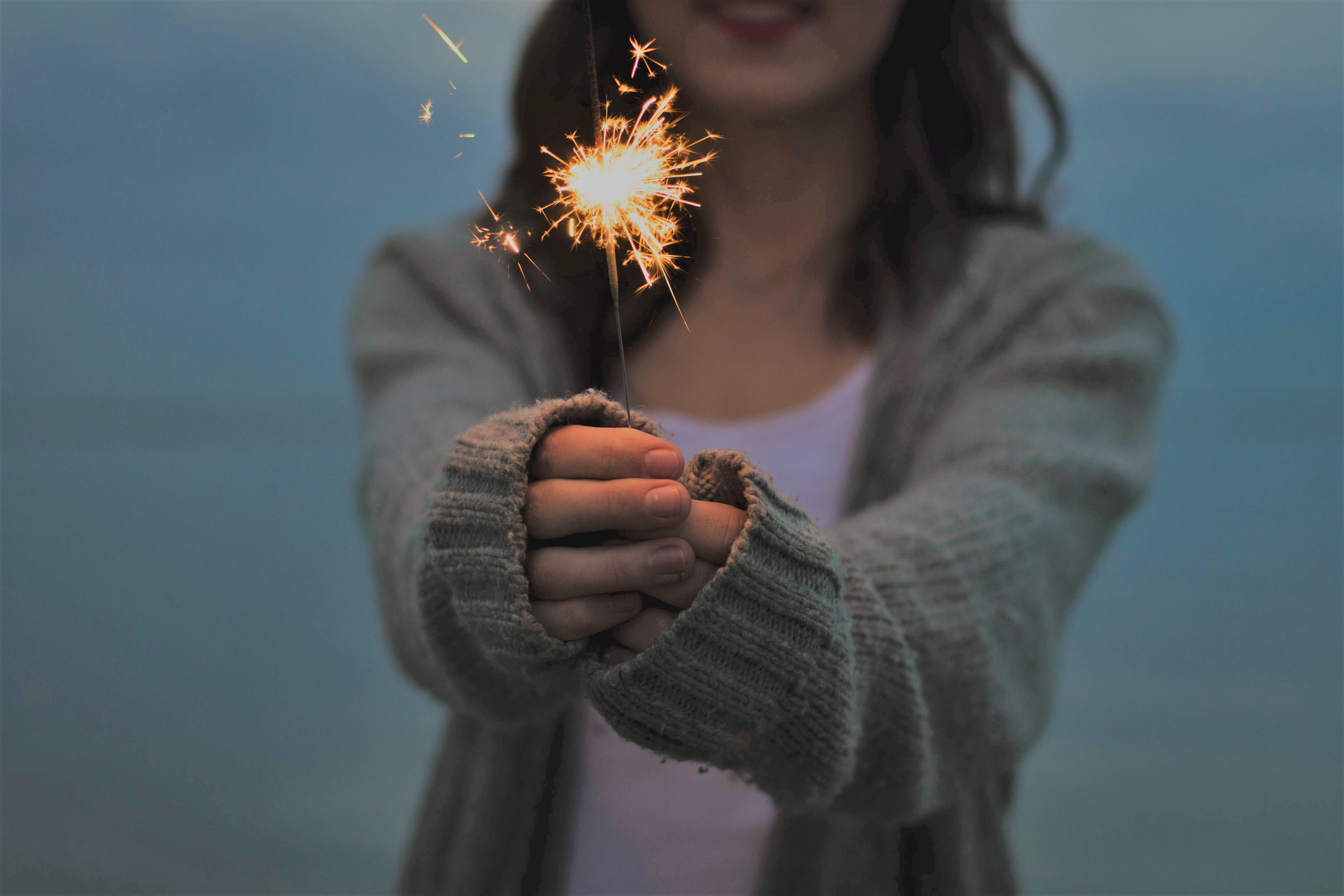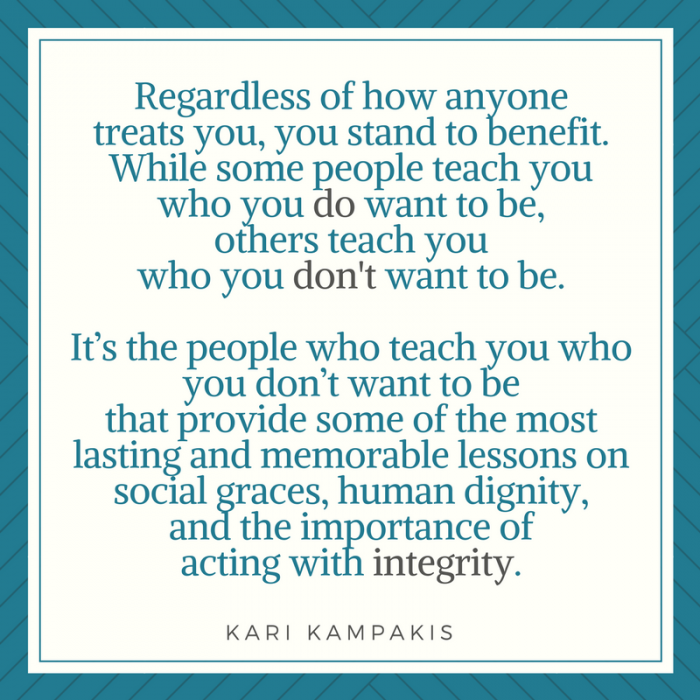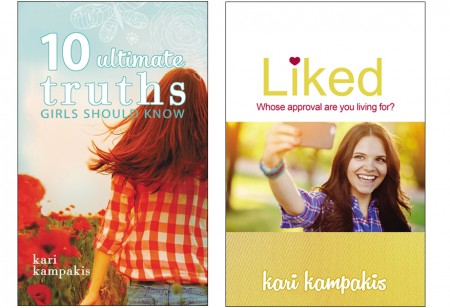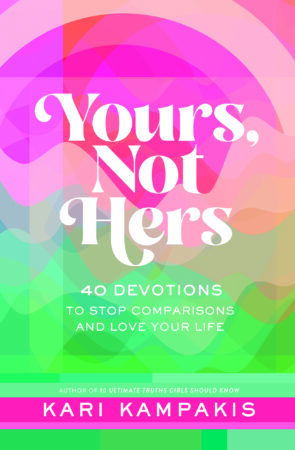Raising a Strong & Kind Child


I remember the incident clearly, doing cheer stunts in my family’s front yard with a babysitter from my older brother’s grade.
I was 9 years old, shy, and overweight. The babysitter had already stunted with my sisters, and she insisted that I try too. I didn’t want to, but after more prodding I finally relented.
What happened next was devastating.
“Ugh,” she said, trying unsuccessfully to lift me from under the armpits as I stood on her thighs, “she’s heavier than Alice, the top of our pyramid!”
I had worried this might happen – and that is why I had hesitated. But what pained me more than having this fear manifest was the careless remark my babysitter made.
You see, my brother is 7 years older than me. And at the tender age of 9, I was savvy enough to do the math and let this comparison to a 16-year-old girl do a number on my self-esteem and the body image I’d have for many years to come.
My babysitter wasn’t trying to be mean. To be honest, I think she was clueless, voicing a thought in her head that was better left unsaid.
And while this encounter left a deep impression on me, I doubt she’d even recall it. I consider this a prime example of how easy it is to hurt someone without realizing the damage you’ve done.
As a mom and a writer, I often hear stories about the hurtful encounters today’s kids face. While some hurts are inadvertent, like my story, others are intentional.
Sadly, the world shaping our kids is tougher, darker, and more critical than the world that shaped us. Even at young ages, kids can make flippant remarks and insensitive statements that cut straight to the core.
In our current parenting culture, one popular mentality is to “fix” every offender. To take an extreme outward focus and control our kids’ environment so they never, ever get hurt. While external action is often needed – especially as it relates to creating a kinder culture and putting a fast stop to bullying – it won’t solve the problem.
Because the truth is, we can’t “fix” everyone who hurts us or protect our children from every slight and insensitive remark. Even when we think our kids safe, as I was with my babysitter, there is still the emotional risk of them being deeply wounded.
This is why I believe in taking internal action as well. Teaching our kids to be strong. Empowering them to handle hurtful, rude, or mean people. Equipping them to process painful situations and difficult emotions. Cultivating an inner strength that protects their heart and enables a healthy response. Instilling in them a crucial life skill they’ll need their entire life.
Unfortunately, our kids will never reach a point in life where they stop feeling hurt. Like us, they are flawed, imperfect people surrounded by flawed, imperfect people. They have fragile psyches and personal weaknesses that sometimes make them hurt others just as others hurt them.
Once our kids realize how we all can be guilty of inflicting pain (intentionally or not) and how we all have room to improve, they can turn hurtful encounters into teachable moments. They can remember how “Pain instructs” and let their pain help them become a stronger, kinder person.
It is a helpless feeling for parents to see your child upset. You want to reverse the damage, erase the memory from their memory bank, yet it can’t be undone. Whether it’s a classmate who insulted them, a Little League coach who yelled at them, a friend who turned on them, a peer who spread a rumor, or some other offender, I think the first step is to comfort your child and remind them how deeply loved they are.
Then, when they’re in a better place and open to a takeaway, you can empower them with words that infuse strength, kindness, and hope. Advice that sounds like this:
__________________________________________________________________
Everyone in your life serves a purpose. Everyone has something to teach you.
While people who are kind and loving help teach you who you do want to be, those who are not kind and loving teach you who you don’t want to be.
So when you encounter someone who hurts your feelings, lean into that feeling. Ask yourself what they did to make you feel that way. Was it the words they chose? Their tone? The way they picked favorites and then ignored everyone else? The way they teased you in public just to get a laugh?
Whatever they did, make a pledge. Promise yourself that you’ll never treat anyone the way they treated you. This is how you become a kinder and more compassionate person. This is how you learn from their mistakes.
And when you meet someone you really like, lean into that feeling, too. Ask yourself what they did to make you feel so good. Then make a pledge to yourself to be more like them. This is also how you become a kinder and more compassionate person.
Regardless of how anyone treats you, you stand to benefit. While some people teach you who you do want to be, others teach you who you don’t want to be. And it’s the people who teach you who you don’t want to be that provide some of the most lasting and memorable lessons on social graces, human dignity, and the importance of acting with integrity.

__________________________________________________________________
Teaching your child to re-purpose their pain empowers them with a sense of control. When someone is hurtful, they can feel their pain first and then categorize it as a reminder to never make anyone feel that way. This builds kindness, strength, and empathy. This helps a child learn to stand on their own two feet and bounce back from negative encounters.
Without question, children need good role models, people they admire and hope to be more like now and as they grow older. At the same time, nobody is a waste. Everyone has something to teach. The worst people offer the best examples of how not to act, and it’s through this filter that children can find freedom, relief, and the greatest power of all – the power to positively change themselves through the most unlikely motivation.
******************************************************************************************************************************
An Extra Idea When Your Child Is Hurt:
My friend Rachel of Hands Free Mama helped her daughter create a pledge book to put the above motto into action. Her daughter now sees hurtful people as “unlikely teachers” who compel her to make different choices.
Through pledges such as “I pledge to be nice to people who are lost” and “I pledge to not talk about someone’s weight,” her daughter has learned that even if a hurtful person doesn’t change, she can be the change she hopes to see. She can stop the hurt rather than perpetuate it – and create a better humanity.
This action can help kids and adults. By using our hurts to better our hearts, we emerge victorious every time – developing a strength of character that will pave the way for a better life.
******************************************************************************************************************************
Thanks for reading this article today. If you found the message helpful, please share it through social media.
I’m grateful for my readers and would love to connect. You can subscribe to my blog, join my Facebook community, or find me on Instagram, Twitter, or Pinterest.
Also, I’ve written two books for teen & tween girls designed to empower them through faith. The newest one, Liked, is getting a fantastic response as a unique resource for girls of the digital age, and along with the bestselling 10 Ultimate Truths Girls Should Know, it’s being used widely across the U.S. for small group studies.
Finally, I have a speaking event in Shreveport, LA, for mothers and daughters (5th grade and up) open to the public. It will be held Thurs., March 7 at 6:30 p.m. at Shreveport First United Methodist Church. I’ll give 2 talks, one on living for Christ and another on friendship. Tickets are $10 and available here.
Thanks for stopping by, and have a great day!
Posted by Kari on April 8, 2018








I say this to my kids all the time. When someone says/does something unkind. It is powerful and the best learning too we can give them.
This is such a powerful reflection you have shared, Kari, with so many valuable takeaways. This section is spot on: “This is why I believe in taking internal action as well. Teaching our kids to be strong. Empowering them to handle hurtful, rude, or mean people. Equipping them to process painful situations and difficult emotions. Cultivating an inner strength that protects their heart and enables a healthy response. Instilling in them a crucial life skill they’ll need their entire life.”
Your idea of “re-purposing your pain” has been life changing for my daughters and me. I am so happy to see you have included it in this timely article. I was so touched to get to the bottom and see the pledge book idea. I was actually thinking about this very topic last week when I got invited to speak to a suicide prevention group led by middle schoolers. I was planning to share your amazing words with the pledge book. You are such a gift, Kari. THANK YOU!
I take this verse whoever I go and plant it amber nag others. It seems to find me at exactly the right times. (He’s funny like that) I have instilled it in my daughters head and I believe it will reveal itself at the right times while She continues to learn as she goes. “She is clothed in strength and dignity and she laughs without fear of the future. Proverbs 31:25 what a beautiful reminder.